Content from the Brookings Institution India Center is now archived. After seven years of an impactful partnership, as of September 11, 2020, Brookings India is now the Centre for Social and Economic Progress, an independent public policy institution based in India.
Geethanjali Nataraj is a Visiting Scholar at the Brookings Institution India Centre, New Delhi. This article first appeared in the Financial Express on 22 August 2016. Like other products of the Brookings Institution India Center, this report is intended to contribute to discussion and stimulate debate on important issues. The views are of the discussant(s), contributor(s) or author(s). Brookings India does not have any institutional views.
Support to China at the summit could certainly act as a catalyst for China giving better concessions to India in RCEP and in bilateral trade ties between the two countries
India has emerged as an important member of G20—able to contribute and influence the reshaping of the world economic and financial order. India has an ambitious multi-pronged agenda for the G20 summit in September 2016; ranging from deploying global surpluses for infrastructure development, inclusive development, energy efficiency to global action to mitigate terrorism and black money. India’s core agenda at the summit would centre on stable and sustainable global growth for employment generation, stable financial markets and global trading regimes. According to India’s sherpa at the G20 Summit, the country will push for poverty eradication and sustainable development, besides trade and investment.
Although trade and investment have always been on the G20 agenda, China is trying to take these to a higher level; therefore, it is imperative that India connects these to the issue of poverty. It will push for cooperation in clean energy to end fossil fuel subsidies in the medium term as demanded by developed countries including the US. Automatic exchange of information among countries to check black money is also a top-priority item on its agenda; though there is an agreement among G20 countries on this issue, there has been hardly any concrete progress. There is also the issue of base erosion and profit sharing (BEPS), which refers to tax planning strategies that exploit gaps and mismatches in tax rules to artificially shift profits to low- or no-tax locations where there is little or no economic activity, and which therefore result in little or no overall corporate tax being paid. The BEPS is of utmost significance for countries, like India, due to their reliance on corporate tax, particularly from multinational enterprises.
Since a new government came to power in India in 2014, China-India relations have been positive and productive with frequent high-level exchanges, especially the two landmark visits by the leaders of both the countries. In 2015, China and India, together with other BRICS partners, worked to launch the New Development Bank (NDB), headquartered in Shanghai and headed by an Indian president. India as the second-largest shareholder also supported China in establishing the AIIB last year. The two countries coordinated their positions before and during the international climate change conference at Paris in December 2015, and participated in the negotiations in a responsible and constructive manner. Terrorism is another common threat for the countries. During the home minister’s visit to China in November 2015, both agreed on closer security and anti-terror cooperation.
Given that the relationship between the two countries is on a high, China can expect complete cooperation and support from India at the forthcoming G20 summit in Hangzhou. In recent times, both countries have collaborated and approached several key global issues with regard to the management of global financial order and for increased stake in the international financial institutions. Both the countries are firm that they will not allow their bilateral issues and problems come in the way of projecting a unified front on important issues affecting both the economies. However, the two countries need to actively shape the agenda and outcomes of all discourses at the international level. India expects China to promote BRICS as a leading global platform that influences global economic issues. It believes that it is a good opportunity for BRICS to increase its influence in the G20 and lay the foundation for a unified voice for more representation in international institutions and global economic governance. With the establishment of the NDB and the AIIB, the BRICS along with other emerging and developing economies can ask for greater role, power, and inclusion in multilateral finance institutions.
The expectations of India, as of the rest of the world, from the Chinese Presidency of the G20 are quite high. China sincerely hopes that its advocacy for an innovative, invigorated, interconnected, and inclusive world economy (4Is) can help coordinate and implement the national policies of G20 members for a robust and sustainable growth model for the world economy. India hopes that China will use its Presidency to bring a new life to discussions on new sources of growth—such as structural reforms, infrastructure investments, and reform of the global financial system—which are important from its perspective. It expects the focus to remain on core issues, especially infrastructure financing, poverty alleviation, and decrease in protectionism, and may not be interested in tackling broader issues, such as the international refugee crisis, which may be important for other countries. Tax avoidance issues stemming from the Panama leak papers would be a key issue for India to be discussed at the summit. China would expect India to avoid any discussion of the South China Sea dispute at the G20 summit and would expect India to support it. India would lead the move to strengthen cooperation among G20 countries and also all others for exchange of information between tax authorities of different countries. Its agenda under the larger umbrella of the Chinese agenda is ambitious. However, it is important that expectations of China’s Presidency of the G20 be realistic and that it be focused on what can be achieved in any single year. India’s support to China at the summit could certainly act as a catalyst for China giving better concessions to India in RCEP and in bilateral trade ties between the two countries.
The Brookings Institution is committed to quality, independence, and impact.
We are supported by a diverse array of funders. In line with our values and policies, each Brookings publication represents the sole views of its author(s).

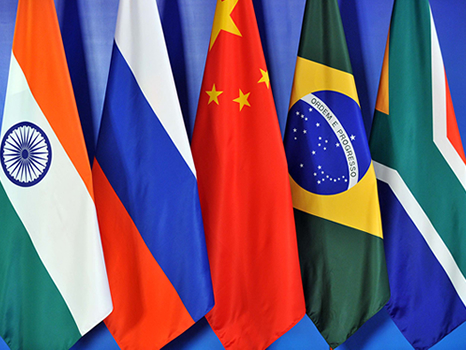
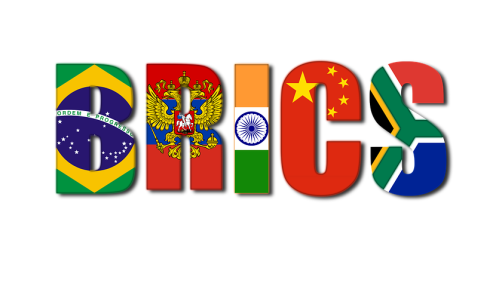
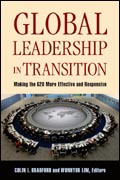
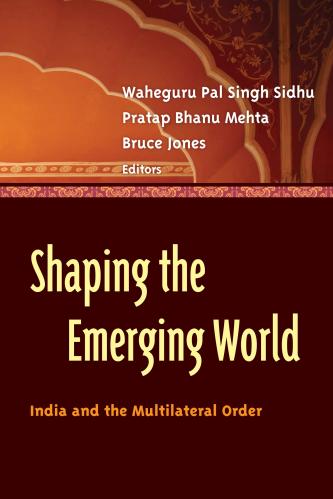



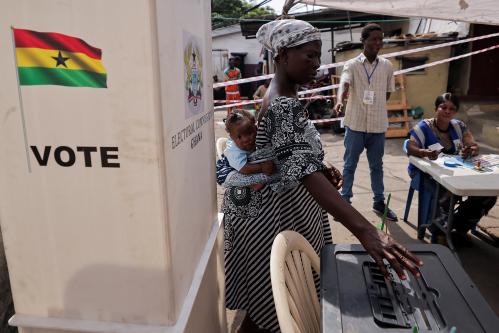
Commentary
Op-edIndia and G20 : How India can reshape world economic and financial order
August 22, 2016